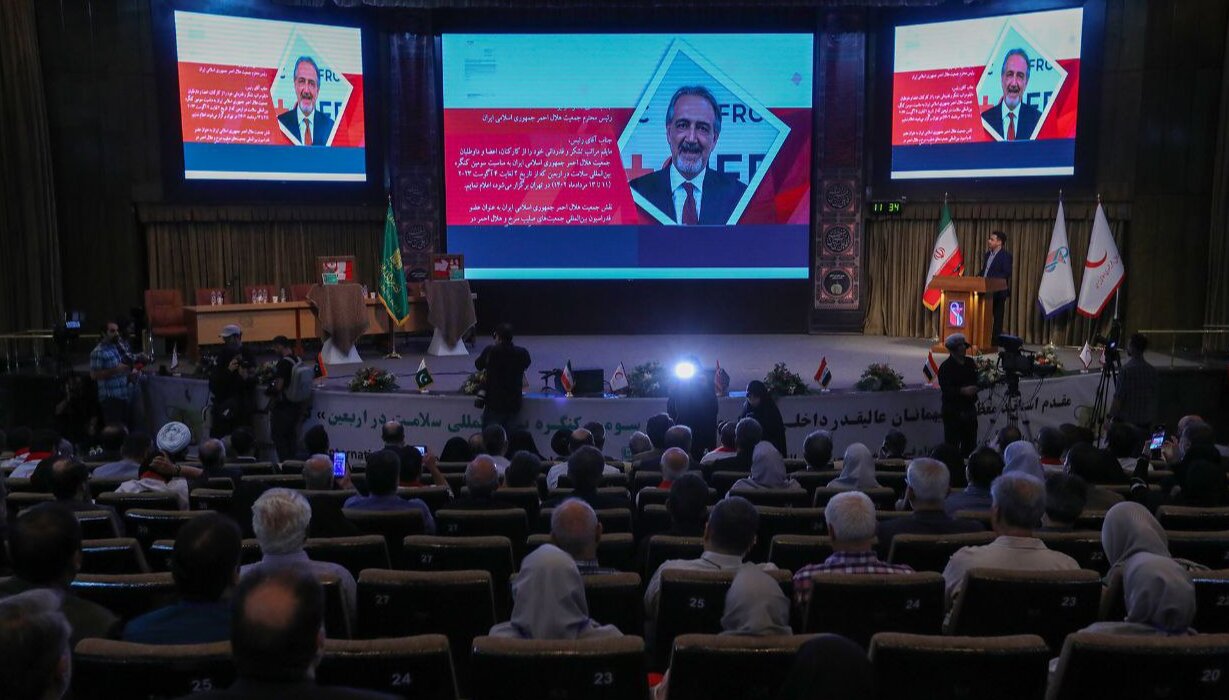IFRC thanks IRCS for holding intl. congress on health in Arbaeen

TEHRAN - Francesco Rocca, the president of the International Federation of Red Cross and Red Crescent Societies, has appreciated the Iranian Red Crescent Society for organizing the third international congress on health in Arbaeen that was held in Tehran from August 2-4.
In a message to Pir-Hossein Kolivand, the president of the Iranian Red Crescent Society, Rocca said that relief activities of the IRCS during the Arbaeen ceremony are very important.
“I would like to express my appreciation to the staff, members, and volunteers of the Red Crescent Society of the Islamic Republic of Iran on the occasion of the third international health congress Health in Arbaeen,” the message reads.
“The role of the Red Crescent Society of the Islamic Republic of Iran, a member of the International Federation of Red Cross and Red Crescent Societies (IFRC), in providing relief and rescue activities during one of the largest religious gatherings is of utmost importance.
Your National Society continues to uphold the Fundamental Principles and values of the International Red Cross and Red Crescent Movement and provide timely and principled humanitarian assistance to the people and communities affected by natural hazards, emergencies, and other crises.”
“I take this opportunity to also thank you for your leadership and unwavering commitment to the humanitarian cause and I wish you, members and volunteers of the National Society continued success in all your endeavors.”
More than 50 foreign participants from nine countries attended the third international congress on Health in Arbaeen.
The three-day event aimed at reviewing the weaknesses and shortcomings of the health sector in the great Arbaeen trek in previous years and providing the necessary solutions.
The participants were mainly from Iraq, Lebanon, the United States, England, Pakistan, and Bahrain.
The Congress also aimed to strengthen inter-departmental coordination and synergy of service providers to reduce the obstacles in providing health services to the pilgrims.
The event was organized by the Iranian Red Crescent Society in cooperation with the Iraqi Red Crescent Society.
Kolivand, the IRCS head, said some 4,000 physicians and 400 tons of medicine will be dispatched to Iraq, especially for Arbaeen, Mehr reported.
The Arbaeen pilgrimage, which is one of the largest religious gatherings in the world, comes 40 days after Ashura, the martyrdom anniversary of Imam Hussein (AS), the third Imam of Shia Muslims, and the grandson of Prophet Muhammad (PBUH).
Each year, a huge crowd of people flocks to Karbala, where the holy shrine of Imam Hussein (AS) is located, to perform mourning rituals.
This year Arbaeen falls on September 6.
This huge religious event will be held with the presence of more than two thousand participants from various fields of medical sciences and Red Crescent societies, Pazoki said, adding that challenges, harms, and health hazards during Arbaeen will be discussed.
Abdorreza Pazoki, the chairman of the congress, said in June that Iran is one of the top five countries in the world in terms of primary health care, and during Arbaeen, all diseases and hazards in the health field, such as dust and natural disasters, will be identified and informed to the pilgrims.
He went on to say that last year, more than 23 million people, from babies to the elderly, participated in Arbaeen, and even special patients, including kidney, diabetic, and transplant patients participated and were provided with different services.
Considering the hot season during Arbaeen, the health of food for pilgrims should be given more attention and planning should be done to provide food services with care to special patients, Pazoki stressed.
Regarding personal and public health, suitable solutions for pilgrims should be on the agenda, and for the treatment of skin, muscle, and skeletal diseases, drugs and equipment are also provided by the scientific committee of Arbaeen.
MG
